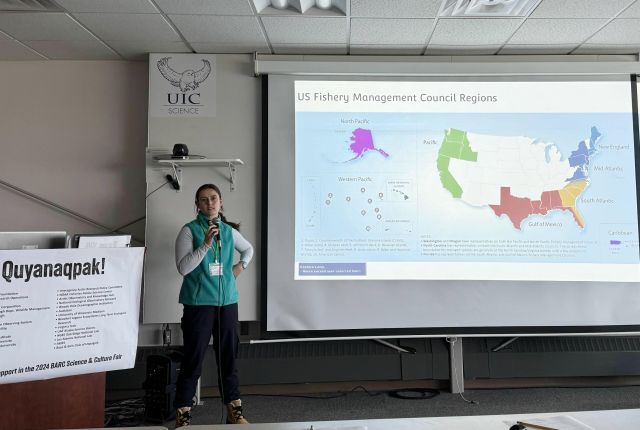New Research Highlights Climate-Resilient Management Strategies For US Fisheries Under Spatial Distribution Shifts
New research led by doctoral student Jacqui Vogel and collaborators explores these challenges from the context of science-policy connectivity and climate-ready management

As climate change reshapes marine ecosystems, understanding and anticipating its impacts on fish stocks is crucial for effective fisheries management. In the United States, where fisheries management is regional and often based on historic stock distributions, the shifting spatial patterns of fish stocks due to climate change is creating significant challenges. Stock redistributions across and within management boundaries complicate not only how stocks are managed, but also who gets to catch them and how to determine where they’ll be found in the future. Understanding these dynamics is essential for navigating the complexities of managing fisheries under increasingly uncertain ocean conditions.
New research led by doctoral student Jacqui Vogel and collaborators explores these challenges from the context of science-policy connectivity and climate-ready management. The research employs a collaborative workshop approach to identify challenges and opportunities in translating scientific findings into practice within the context of the US fishery management system.
The open-access paper, published in the journal Marine Policy, presents 27 actionable recommendations and two strategic pathways designed aimed at elucidating and simplifying the process through which available data and predictions on new species distributions are integrated into the policy spheres where they’re most needed. Identified actions are targeted at specific components of the US Fishery Management Council System, and specific case studies provided by regional experts highlight cases where collaborative and science-informed management has or has not occurred in the past.